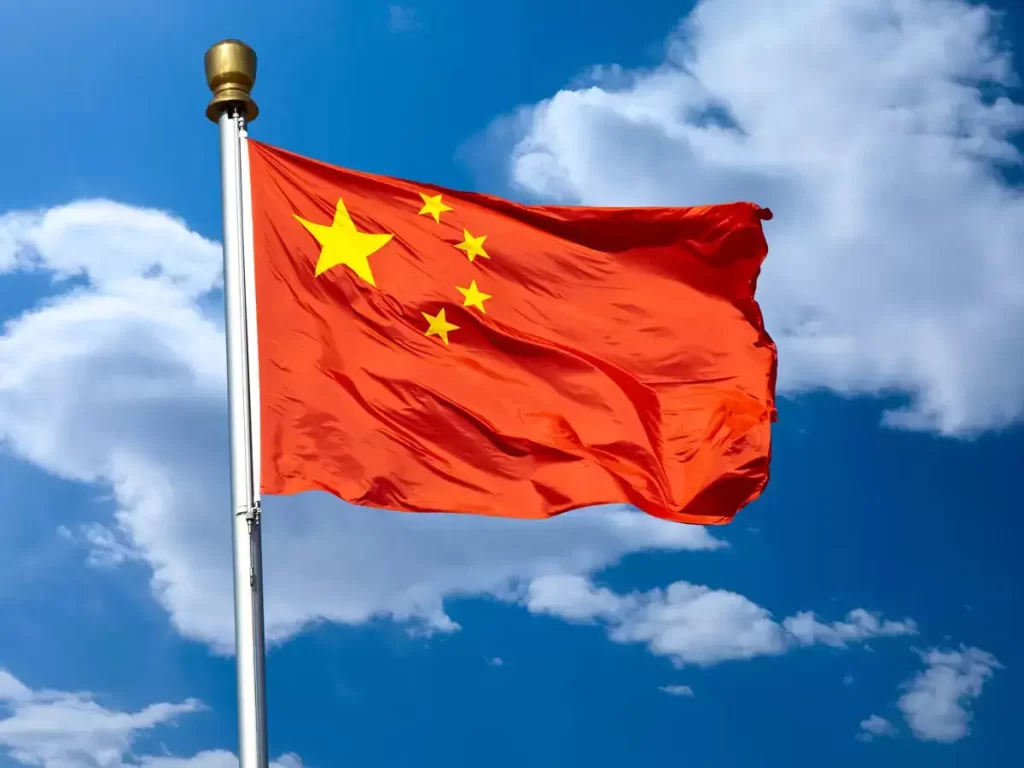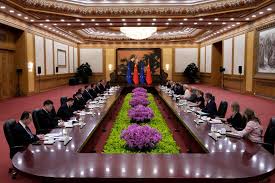Contemporary significance of China’s three global initiatives

Henan Daily
Zhengzhou: Since 2021, China has introduced three major global frameworks: Global Development Initiative (GDI), the Global Security Initiative (GSI), and the Global Civilization Initiative (GCI). These proposals represent China’s contribution to addressing transnational challenges through multilateral cooperation.
Amid persistent global instability, these initiatives offer stabilizing influence and forward momentum. Their significance lies in responding to critical contemporary pressures: the COVID-19 pandemic and protectionism have widened the development gap, significantly hindering progress on the United Nations 2030 Agenda for Sustainable Development.
At the same time, certain nations’ pursuit of absolute security at others’ expense has fueled geopolitical tensions, while narratives framing global politics as a binary clash between so-called “democracy and autocracy” exacerbate fears of civilizational conflict.
Against this backdrop, the unstoppable rise of the “Global South” and the irreversible momentum toward peace, development, and cooperation underscore humanity’s universal desire for stability and progress. The three initiatives offer both immediate pathways to tackle urgent global problems and a strategic vision for a shared future.
The GDI advocates prioritizing development, adopting a people-centered approach, promoting inclusive and mutually beneficial cooperation, fostering innovation-driven development, advocating harmonious coexistence between humanity and nature, and encouraging action-oriented cooperation to jointly advance the global development agenda.
The GSI, meanwhile, embraces a vision of common, comprehensive, cooperative, and sustainable security, and calls for creating a new path to security featuring dialogue over confrontation, partnership over alliance, and win-win over zero-sum.
The GCI advocates a vision of equality, mutual learning, dialogue and inclusiveness among civilizations, and promotes the shared values of all humanity to make the garden of world civilizations colorful and vibrant.
These initiatives draw on China’s cultural heritage, including the pursuit of universal harmony and international amity. They crystallize the core principles of Chinese diplomacy – peaceful coexistence and seeking common ground while reserving differences. Rooted in the global vision of the Communist Party of China and a strong sense of internationalism, these initiatives reflect China’s strong sense of responsibility as the world’s largest developing country.
Anchored in the historical trend of human progress, the initiatives address the critical questions of our time – “what is happening to our world” and “How should we respond,” – providing public goods for improving global governance while illuminating the pathways to resolve the world’s pressing challenges.
Since their inception, the initiatives have gained recognition and support from more than 100 countries and international organizations. What began as Chinese proposals has steadily evolved into shared global commitments, moving from common visions to tangible actions. Together, China and the international community are forging a new chapter in building a community with a shared future for humankind.
The GDI has significantly energized efforts toward inclusive and sustainable development.
In terms of mechanism building, China has hosted the High-Level Dialogue on Global Development and established the Group of Friends of the GDI, now joined by over 80 member states. It has signed cooperation documents with more than 50 partners, and supported the establishment of a dedicated working group within the United Nations to advance the initiative.
In terms of resource mobilization, China has committed nearly $20 billion in development funds, established over 30 cooperation platforms, and launched the Global Development Promotion Center.
As for project implementation, over 1,100 development projects have been carried out under the GDI framework, with more than 600 currently active. Additionally, over 60,000 professionals from developing countries have received training through capacity-building programs. China has also given all the least developed countries with which it has diplomatic relations zero-tariff treatment for 100 percent tariff lines.
In the realm of global security, China has advanced the GSI by publishing its Concept Paper, outlining 20 key areas for cooperation, and put forward the Global AI Governance Initiative. It actively promotes political solutions to major international issues – including mediation in the Ukraine crisis, Israeli-Palestinian conflict, and Afghanistan situation. Notably, China facilitated the Saudi Arabia-Iran reconciliation agreement, fostered intra-Palestinian dialogue, supported Myanmar peace talks, and proposed the Outlook on Peace and Development in the Horn of Africa.
Meanwhile, China has deepened security dialogues through platforms such as the Beijing Xiangshan Forum, the China-Africa Peace and Security Forum, and the Middle East Security Forum.
In June 2024, the United Nations officially designated June 10 as the International Day for Dialogue among Civilizations. China has taken the lead in launching and participating in forums such as the Ancient Civilizations Forum and the Conference on Dialogue of Asian Civilizations, contributing new momentum to global cultural engagement.
In addition, China has hosted the inaugural General Assembly of the Alliance for Cultural Heritage in Asia, co-organized exhibitions of cultural relics with multiple countries, and actively promoted heritage preservation and innovation. Through partnerships with ASEAN, Greece, and others, China has launched a range of cultural and tourism-themed years and festivals, taking people-to-people exchanges and cooperation to new heights.
Amid growing global complexities, China maintains its commitment to peaceful development. Guided by Xi Jinping Thought on Diplomacy, China will continue to uphold the principles of fairness, justice, and win-win cooperation. By working hand in hand with all countries to implement the three initiatives, China aims to contribute to building a community with a shared future for mankind and usher in a more peaceful, secure, prosperous and inclusive future.





